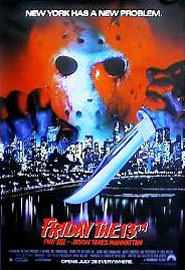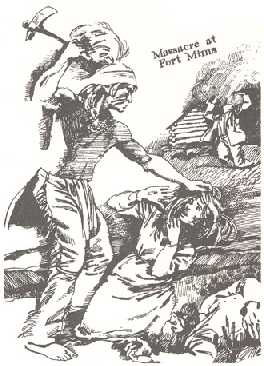



Wrong
Multiculturalism—a creation of leftist, Western, nihilistic, post-modern philosophy professors—begins by promoting "cultural relativism," which holds that all cultures are of equal value; no culture is better or worse than any other. Logically, this serves to de-value Western values, such as reason, science, productiveness, and each individual's right to life, liberty and the pursuit of happiness, by equating them with the most irrational and destructive practices of primitive, mystical cultures such as voodoo medicine, the subjugation of women by men, genital mutilation, and even cannibalism. As essentialized by Peter Schwartz, "Multiculturalism is the debased attempt to obliterate values by claiming that they are indistinguishable from non-values."
Glenn Woiceshyn, Multiculturalism Breeds Terrorism, 6/24/06
Multiculturalism is another perfectly good English word that has been ruined by the quota industry.
This term was invented by the quota industry to overcome significant public resentment over the more obvious, traditional quota terms such as affirmative action, diversity, hiring goals, and historically disadvantaged.
The word has great appeal because it seems similar to the concept of "melting pot".
Of course, "multiculturalism" is the exact opposite of melting pot! It literally means don't learn our country's cultural values, don't learn our way of life, don't learn our language, don't try to fit in, don't assimilate!
Close but no cigar...
Multi-cultural means including people who have different customs and beliefs. a multicultural society
Cambridge International Dictionary of English
Right
Main Entry: mul·ti·cul·tur·al
Function: adjective
Date: 1941
: of, relating to, reflecting, or adapted to diverse cultures
multicultural (adj.)
mul·ti·cul·tur·al
1. of, pertaining to, or representing several different cultures or cultural elements: Example: a multicultural society.
multicultural
relating to a number of different cultures, esp. to the traditions of people of different religions and races
The school board strongly endorsed a curriculum that reflected a multicultural education.
Cambridge Dictionary of American English
Syllabication: mul·ti·cul·tur·al
Pronunciation: mlt-klchr-l, -t-
Adjective: 1. Of, relating to, or including several cultures. 2. Of or relating to a social or educational theory that encourages interest in many cultures within a society rather than in only a mainstream culture.
There you have it. The definition of "multiculturalism" is pretty darn simple, folks. Read what the etymologists say, not what politically incorrect yahoos who can't crack a dictionary say.
Multiculturalism is a neutral, descriptive word just like many other -isms—e.g., capitalism, patriotism, monasticism, journalism, athleticism. Just as there are good and bad implementations of capitalism, there may be good or bad implementations of multiculturalism as a policy or program. But how multiculturalism is implemented has no necessary connection with its basic definition.
The basic definition, as the word suggests, is merely to recognize multiple cultures. Period. Nothing about recognizing multiple cultures says that white culture is bad and black/brown/red/yellow culture is good.
In fact, any country of "color"—Mexico, Brazil, Nigeria, Iran, India, China—may choose to recognize its white, Christian, and other minorities. Or it may not. What it chooses to recognize doesn't change the fact of multiple cultures within its borders. These cultures exist whether the dominant culture recognizes them or not.
Recognizing different cultures is no more ideological than is recognizing different animals, vegetables, or minerals in nature. Again, it's value-neutral—unless you think acknowledging and studying chickens or legumes or plankton is an affront to the human species and its "superiority." If that's the case, the only values you're imposing are your own. You need to look at your biases rather than blame other creatures for existing.


Multiculturalism in practice
A few sources address what multiculturalism means as it's commonly implemented. Again, these aren't definitions of the word itself, but definitions of the usual policies or programs arising from the multicultural concept.
multiculturalism -- A movement to broaden the range of cultures we study, in reaction to the prevailing opinion that the great accomplishments have been made almost exclusively by males of European descent (DWMs).
The thrust of the term infers that there is acceptance of and respect for the continuance of other cultures in American society. This is distinctly different from the "melting pot" goals of the turn of the century and it seems to acknowledge the contributions that other cultures can make via their diversity.
Richard, sci.anthropology, 8/2/95
Here's my formal answer to the question "What is multiculturalism?"
This is a tricky question because the definition of multiculturalism depends heavily upon the context in which it is discussed. Also, the concept of multiculturalism is constantly changing as more people make their voices heard to a continually growing audience. In the United States, multiculturalism is a social and political movement and position that holds differences between individuals and groups to be a potential source of strength and renewal rather than of strife. It values the diverse perspectives people develop and maintain through varieties of experience and background stemming from racial, ethnic, gender, sexual orientation and/or class differences in our society. It strives to uphold the ideals of equality, equity and freedom on which the United States is based, and includes respect for individuals and groups as a principle fundamental to the success and growth of our country.
Rosa Carson, What is Multiculturalism?
A source of strength rather than strife...upholding the ideals of equality and freedom...respect for individuals and groups. Hmm. Doesn't sound especially scary or challening when you put it that way. Sounds like what America is supposed to be about.
Here's an example of how multiculturalism has changed the arts—and by extension, many aspects of culture:
Multiculturalist thinking changed the art world's demographics and expanded its frame of reference far beyond Western horizons. It exposed the social and ethical mechanics of art and its institutions and called traditional aesthetic values into question. Most important, it reversed old patterns of exclusion and brought voices into the mainstream that had rarely, if ever, been there before.
Holland Cotter, Beyond Multiculturalism, Freedom?, NY Times, 7/29/01
Expanding horizons...reversing exclusion...more scary thoughts for people who wrongly define and apply what multiculturalism means.
Multiculturalism disputed
From a letter to the LA Times, 3/21/01:
Gregory Rodriguez ("The Future Americans," Opinion, March 18) is wrong in his views of multicultural history and society. He defines multiculturalism as an "ideology that promotes the permanent coexistence of separate but equal cultures." This bogus definition and argument paint a monolithic national picture of divisiveness and difference created by, you guessed it, people of color and language minorities.
After constructing this view of multiculturalism, Rodriguez compares it with the old and discredited view of America as a cultural "melting pot," in which racism used to play a significant role. That was a bad melting pot. However, in an argument vaguely connected to the "fluid nature of ethnicity and race" as revealed by the national census, he suggests that today's melting pot has been purged of racism. Therefore, Americans who resist today's supposedly nonracist melting pot must themselves be racists, and racial discrimination turns out to be a national evil for which Americans of all races share equal responsibility. Whew! Turns out, it's their own darn fault!
Multiculturalism is less a philosophy than a demographic fact. Nonwhite and immigrant voices and languages will either be heard to our national advantage or ignored to our national peril, but they will not be silenced or assimilated out of existence by convoluted arguments or (as Rodriguez illogically suggests) by fluid racial identities.
MARTIN LIPTON
Los Angeles
And my response to the same article:
In his op-ed piece on the US Census, Gregory Rodriguez announced "the beginning of the end of multiculturalism." In the same edition the Times reported on the unique Japanese response to a submarine collision, Native Hawaiians opposing telescopes on Mauna Kea, and a St. Patrick's Day parade. All are evidence that multiple cultures are alive and well in America and elsewhere.
Do white people from different places—Alaska, Afghanistan, Albania, Argentina, Australia, etc.—have the same "white" culture? Obviously not. Rodriguez has made the mistake of confusing multiracialism with multiculturalism. Many cultural groups—for instance, Latinos and Native Americans—include people of various races. Cultures are social and political in nature, not biological.
Regardless of how ethnic groups evolve, the world will remain multicultural as long as religious, political, social, economic, and linguistic differences exist. So will the United States. Multiculturalism is impossible to "end" because it's an intellectual idea, not a program you can eliminate.
Other conservative/libertarians have tried to dismiss multiculturalism with equally poor results. As explained in Indian Country Today, 10/27/05:
According to these would-be followers of Rand: "Multiculturalism is the view that all cultures, from that of a spirits-worshiping tribe to that of an advanced industrial civilization, are equal in value."
Pitting the "value of a free, industrialized civilization" against what it calls "primitive tribalism," ARI writers equate this struggle as between what is "life promoting [read: civilization] from that which is life negating [read: American Indian culture]."


This is intellectually dishonest. The proper approach to the understanding of culture does not ignorantly pit one whole culture against another. Rather, the question is one of understanding the superlatives as well as other possible scales of positive and negative (which found in every society) rather than the racist and decrepit idea of the inherent superiority of the West.
Incidentally, I don't buy that there's a huge difference between the past "melting pot" metaphor and the more recent "stew" and "salad" metaphors. These metaphors all share the same premise: that separate ingredients mix to form a tasty concoction greater than the sum of its parts. Whether the ingredients melt into nothingness and lose their distinct identities or not is a semantic detail.
In fact, if you add any substantial ingredients—meat, vegetables, etc.—to a pot, they pretty much won't liquefy into a single, uniform gruel. In the real world, the melting pot metaphor is essentially the stew metaphor, and both are little different from the finely chopped-salad metaphor. The key point—separate ingredients contributing to the whole—is the same.
People who think America has abandoned the melting pot concept haven't thought enough. Multiculturalism, as defined above, simply means recognizing the different ingredients that go into the pot. If you think you can cook something worthwhile with just one ingredient, by all means try. I'm guessing a single-ingredient dish will taste bland—kind of like white-bread America did before we began acknowledging its multicultural flavors.
More on the "melting pot"
"Melting pot" explained
Multiculturalism whacked
From the LA Times, 7/28/01:
Voices / A Forum for Community Issues
Multiculturalism Gets Whacked By Popular Culture
By JAMES SOLOMON
James Solomon is a professor of English at CSUN
One of my students recently brought to my attention three television advertisements that have the dubious distinction of having earned "The Rudyard Kipling Prize for the Year's Most Racist TV Spot." The prize is awarded by New York University's Department of Culture and Communication in its annual takeoff on the ad industry's Clio Awards.
The winning ads are all part of a campaign by Fox Sports that makes fun of "foreign" customs to attract viewers to the Fox network. One ad, which is set in India, features two blindfolded "contestants" who swing bats at each other and end up attacking their robed and turbaned spectators as an excited "sports announcer" babbles in some unidentifiable language.
Another features a Turkish diving competition in which a contestant is judged on his dive from a high cliff straight into a bare patch of dirt. And the third is a mock broadcast of some sort of Russian face-slapping contest.
These ads, of course, are supposed to be funny in the way that Polish jokes are supposed to be funny. And making fun of others is hardly anything new in the annals of human behavior.
But what is striking about the Fox Sports ads is that their unabashed appeal to feelings of cultural superiority is made to a generation of youthful Americans who are the first generation to have been raised in an era of multicultural education. If such an audience is indeed persuaded by Fox TV's zenophobic humor to watch Fox Sports broadcasts, then something has gone badly wrong.
And I think it has. Multicultural education, a movement that is now well over a decade old, is intended to foster respect for and interest in other cultures. Its purpose is to show that America's traditional culture, which is European at base with a strong Anglo-Saxon top-spin, is but one culture among many with no inherent superiority.
At its best, multicultural education encourages a curiosity in the workings of any culture while discouraging hierarchical cultural partisanship.
But if the advertising team for Fox Sports is right—and ad campaigns are not created out of marketing vacuums—some of today's youth market is eager for cultural targets to sneer at. And the popular cultural evidence suggests that Fox is right. Just listen sometime, if you can, to contemporary rap lyrics: Whether the targeted group is women, homosexuals, Asians or Jews, youth music is filled with fury against people that the rap audience should have been taught to accept, not revile.
So what has gone wrong? Fundamentally, I think that multicultural education has failed in two ways. First, it seems that telling kids not to hate someone is like telling them not to smoke: It only encourages the proscribed behavior. Popular culture figures from Andrew Dice Clay and Howard Stern to Eminem have all found that there is money to be made by breaking the taboos that adults impose upon kids.
It would appear that a decade and more of multicultural lessons is producing a backlash of resentment and counter-provocation rather than social tolerance.
I also think that there is a second facet to the problem. Generally, the people one finds targeted in popular culture are those perceived to be weak enough to safely attack. Certainly the Indians, Turks and Russians in the Fox ads are in no position to protest and put a halt to the ad campaigns that make fun of them. But women, homosexuals and Jews, who are far and away the most common objects of the anti-multicultural backlash, evidently are perceived as being too weak to fight back as well.
What I fear multiculturalism has created, then, has been an unintentional redistribution of power. Some kids seem to be getting the idea that certain groups, once the target of discrimination, are now off limits, while others are not. I think that this is the result, in part, of schools isolating specific groups for monthlong celebration, while neglecting others. The kids get the message: The celebrated groups have power; the uncelebrated ones don't. And so, for some, they're fair game.
What kids should be learning is that it's wrong either to hate or elevate anyone simply on the basis of their ethnic identity, that multiculturalism means valuing everyone.
That, of course, is what multiculturalism does mean, and I'm neither advocating an end to multicultural education nor claiming that it is solely at fault for the problem. But if the signals we are getting from Fox Sports and pop music are right, kids are getting the wrong message.
Copyright 2001 Los Angeles Times


Solomon raises a couple of interesting points. One, are kids breaking taboos because it's fun to do whatever teacher says not to do? Maybe, but that suggests teachers are preaching multiculturalism rather than letting it unfold naturally. If teachers show multiculturalism as a normal aspect of society, as some recent movies have done, they'll find Multiculturalism Sells!
Two, are kids attacking women, Asians, gays, and Jews because blacks and Latinos are off-limits? Because they have their own holidays? That seems a bit simpleminded to me. Many schools with large black or Latino populations still have tensions.
Moreover, we still slight women and gays in ways that go beyond multiculturalism. When conservatives won't allow gay teachers or clubs to operate on campus, is it any wonder kids feel it's okay to attack gays? If schools merely treated gays neutrally, without celebration, kids would learn to accept gays as their school does.
A letter responding to this article claimed people in India, Turkey, and Russia are probably laughing at us, and people will continue to distinguish themselves by race and language until we all speak Esperanto. Maybe so, but do we need to laugh at the distinctions? To encourage others to do so?
Multiculturalism means to recognize multiple cultures, but "scorn" or "derision" isn't the kind of recognition people mean. That people in other countries are ignorant of our culture is no excuse for us to be ignorant of theirs. Fox Sports is encouraging this ignorance while multiculturalism encourages understanding. Which do you prefer for you and your children?
Another letter makes a similar point. From the LA Times, 8/4/01:
In a complex discussion of what he sees as the failures of multiculturalism (and multicultural education), Solomon speaks of one negative result as being the creation of multicultural bullies who, once themselves targets of vitriol, are now not only "off limits" and have their own "monthlong celebration," but are engaging in hatefulness themselves—in rap music, for example. It feels as though it's not just multiculturalism and rap music that are targeted but African Americans, as well.
Solomon claims that multiculturalism has failed in large measure because it basically admonishes kids "not to hate." Multicultural education is primarily about teaching kids to ask many questions, including who they are, why we hate, how hate is constructed and exploited and what makes hate profitable. And it teaches them to ask how we form and understand ideas represented in words such as "culture," "race," "same," "different," "weak" or "powerful." We just have to keep thinking about multiculturalism and how to teach it.
SHARON M. KLEIN
Los Angeles
Multiculturalism terrorized
From the LA Times, 9/22/01:
Voices / A Forum For Community Issues
Forget the Hyphens
By RON EMMONS
Ron Emmons is an associate professor of English at Los Angeles City College
As the horrific images from the terrorist attacks on New York City and the Pentagon continued to fill TV screens across America, I met with my students at Los Angeles City College to help sort through our overwhelming feelings of shock, sorrow and anger.
In those moments of collective grief, as we struggled with what could possibly come out of this tragedy that was positive, the answer loomed vividly before us. We had finally become Americans again.
For the past 30 years, particularly on college campuses, the American experience has been the multicultural experience, approached through the filters of race, ethnicity, gender, sexual orientation, religion. In a determined quest for diversity at all costs, we became at worst a nation of separate tribes, each fighting for recognition, freedom and equality. This fight to protect each group's cultural rights and heritage—often at the expense of other tribes—hurt national unity.
We became a nation of "us" and "them." All too often there was no "we" in the equation.
While the objective of multiculturalism was to help students learn about and respect non-mainstream cultures, many ended up highlighting our differences—indeed trumpeting the differences. Students learned who they were, but forgot who we were.
The enduring lesson rising from the dust-shrouded rubble of the World Trade Center is that we are all Americans.
As Dr. Martin Luther King Jr. said 40 years ago, "We are caught up in an inescapable network of mutuality, tied to a single garment of destiny."
It's time to file away our fixation on hyphenates—"African-American," "Armenian-American," "Mexican-American"—and again emphasize our commonality.
Or as one of my female students sobbed, tears running down her face, "Today, I'm not a woman. I'm an American."
Rob's reply
In response to this column, I wrote the following to the LA Times, 9/23/01:
Professor Emmons says minorities are highlighting, even trumpeting, their differences. Funny, but I haven't heard anyone "trumpeting" any differences. What differences are they trumpeting, exactly?
That blacks were enslaved while white Americans enslaved them? That Indians were killed while white Americans killed them? These aren't "differences," they're facts.
Telling people to forget their hyphens is telling us to forget America history. George Santayana had the proper reply for such calls to ignorance. "Those who cannot remember the past are doomed to repeat it."


I also wrote the following to the LA Times, 9/25/01:
I wonder if Emmons uses the label "professor" in his public life. Is he perhaps a "PhD"? If he expects others to eschew labels that identify themselves, I trust he doesn't use such labels himself.
More funny thoughts:
This student claims she was "an American" that day. Presumably she'll revert to being a woman sooner or later. I'll venture to guess that her permanent role as a woman will have far more influence on her life than her one day as an American responding to terrorism.
So it is with most biological and cultural traits. They exist whether people want them or not, whether people wish them away or not. Being black or another ethnicity is a fact of life just as being a woman is.
More on Natives and multiculturalism
Indian Country Is Multicultural: Our Commitment to Inclusiveness
Related links
Culture and Comics Need Multicultural Perspective 2000
Suspended Animation's review of PEACE PARTY
News from a multicultural perspective
Author's Forum on multiculturalism
America's cultural mindset
Readers respond
You claim to be a multicultural website, yet I can't see anywhere in your website that includes whites into the equation as well."
Yeagley: "Multicultural liberals obviously hate and disrespect Indians."
"So we have put aside the intra-country focused 'we'...and instead have taken up the extra-country focused 'we.'"
|
. . . |

|
All material © copyright its original owners, except where noted.
Original text and pictures © copyright 2007 by Robert Schmidt.
Copyrighted material is posted under the Fair Use provision of the Copyright Act,
which allows copying for nonprofit educational uses including criticism and commentary.
Comments sent to the publisher become the property of Blue Corn Comics
and may be used in other postings without permission.